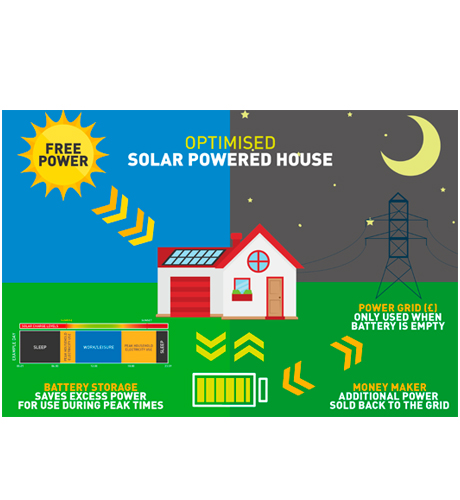Open research supports
solar energy take-up
Dr Philip Leicester and Dr Paul Rowley
Centre for Renewable Energy Systems Technology (CREST)
Open access modelling tools developed by CREST are improving industry and consumer outcomes for the solar photovoltaic (PV) sector.
Because renewable energy subsidies have ceased, financial returns on domestic PV investment are extremely tight.
Therefore, providing accurate energy saving estimates for householders considering a PV installation is an essential factor in the decision-making process.
The CREST open access models can be used to more easily estimate self-consumption – how much energy generated on-site is consumed on-site.
Maximising self-consumption is key, since it means the householder buys less electricity, reduces their carbon footprint, and receives better financial returns.
Building on existing CREST models, the new open access tools – validated by the Building Research Establishment – evaluate solar PV systems with and without battery storage technology.
They rapidly deliver high accuracy energy import, export, storage charging and discharging time series which reflect the wide variety of UK domestic usage.

The large datasets also enable analysis of wider impacts, including that of PV on fuel poverty and the evaluation of new revenue streams for PV, including the Smart Export Guarantee which energy companies will soon be obliged to offer PV owners for their exported energy.
A dataset for self-consumption estimation has now been incorporated into a new open standard, published by the Microgeneration Certification Scheme (2019) – providing a one-stop cost-effective solution to the industry, enhancing protection against mis-selling, and boosting consumer confidence.
CREST’s open access tools are supporting further growth in the renewable energy sector – creating more green jobs and generating the sustainable energy required to meet the UK’s carbon reduction targets.